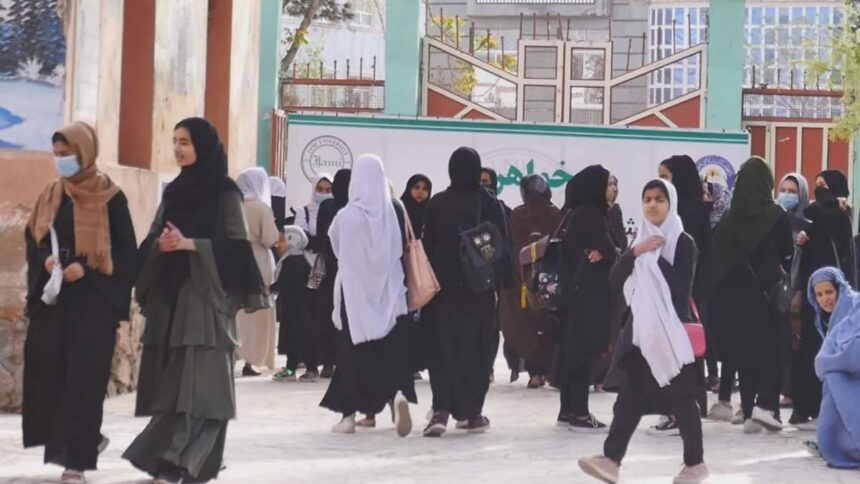RASC News Agency: Sara Baharaki, the UN Global Youth Ambassador and an official of a charitable institution, underscored in her recent statements that the Taliban have prevented over two million girls from attending school during their two-year reign. Ms. Baharaki addressed this issue on Tuesday, April 16th, during a gathering of young leaders from around the world convened at the United Nations headquarters to exchange perspectives and strategies for advancing sustainable development.
Born in Afghanistan and currently residing abroad, she highlighted at the meeting that despite the Taliban’s efforts to stifle the voices of young people, particularly girls, they persist in their struggle to secure the fundamental rights of this demographic. The UN Youth Ambassador further remarked, “While education is pivotal for poverty reduction, conflict resolution, and addressing climate crises, over two million girls in Afghanistan have been barred from attending school, with millions more left in limbo in Ukraine, Palestine, and Sudan.”
Baharaki stressed the imperative for the United Nations to take tangible steps towards facilitating the return of Afghan girls to schools. This young Afghanistani still deems youth participation in decision-making processes as essential and calls for increased support from governments, the private sector, and civil society in this regard. Baharaki pointed out, “Not only because youth constitute 16 percent of the global population or because we are the most educated generation, but because we wield power.”
Meanwhile, Antonio Guterres, the Secretary-General of the United Nations, also emphasized in his address at the assembly that youth must play a role in governmental decision-making. Guterres declared, “We need young people, and I am fully committed to integrating young people into political decision-making. We will not only listen to your theories but also act upon them.”
These remarks arise amidst the Taliban’s two-year rule, during which they not only hindered Afghanistani youth, especially girls, from participating in decision-making but also deprived them of their basic rights, including the right to work and education.






